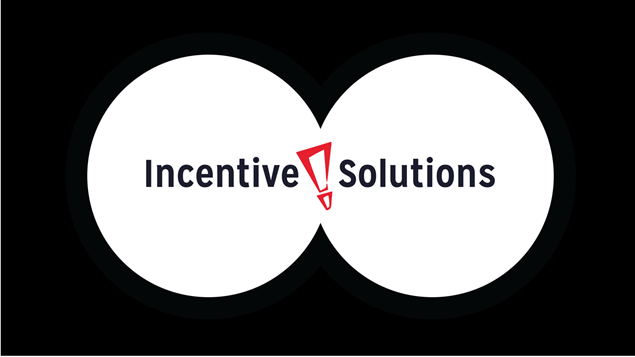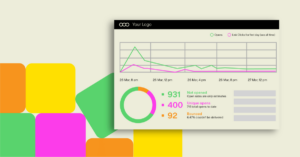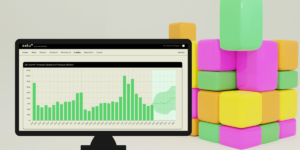Let’s pretend you were trying to buy a new air-conditioner. Chances are you wouldn’t buy it from the factory. Instead, you might have a contractor come out to your house to recommend you a new unit. Or you might go to a retailer or dealer and speak with an on-floor sales rep. Or you might even chat with a rep from an online wholesaler or distributor.
But you wouldn’t shop at the factory. In fact, you might not interact with the manufacturer at all.
This is because most manufacturers sell through an indirect sales channel. Throughout that sales channel, there are many players who influence the buying decision of the consumer. These influencers – the contractor, the dealer, the online sales rep – are known as channel partners.
But how do channel partners decide which brands and products to recommend to consumers? And how can manufacturers motivate channel partners to increase sales of their products? This is where channel partner incentive companies come into play.
What Channel Partner Incentive Companies Do
Channel partner incentive companies help manufacturers build mindshare, collect data, and enable channel partners to sell more effectively. Channel incentive companies do this through a variety of tactics, such as:
- Creating SPIFFs or channel sales incentives to motivate channel partners to sell specific brands or products.
- Using the promise of channel partner rewards to improve marketing throughout the distribution channel.
- Educating dealers and contractors on the value proposition of the manufacturer’s products.
- Inspiring channel loyalty from various members of the distribution channel.
- Helping manufacturers collect data that allows them to personalize their value offering to channel partners.
- Integrating channel incentives with an e-commerce platform or customer portal to provide faster service, more brand engagement, or additional training
All of these factors help manufacturers increase channel sales. According to The Incentive Research Foundation, non-cash channel incentive programs increase total revenue by 32% and market share by 30%.
Examples of Channel Partners an Incentive Program Can Influence
Who are the various members of the sales channel that channel partner incentive companies influence? Examples and definitions of channel partners include:
- Distributors – A distributor is an intermediary company who helps to move products between the manufacturer and other third-party resellers. Often, they have some sort of ongoing partnership or agreement with the manufacturer.
- Distributor Sales Reps (DSR) – A distributor sales rep is a sales rep who negotiates product sales from the distributor to other vendors or consumers.
- Value-Added Resellers (VAR) – Value-added resellers are companies that purchase a product from the original manufacturer, bundle it with additional products or services, and sell it to the end consumer.
- Wholesalers – Wholesalers are similar to distributors, except wholesalers usually sell exclusively to retailers and are often further removed from the manufacturer. For example, they may purchase the product from another distributor or reseller instead of directly from the manufacturer.
- Dealers – Dealers buy products from distributors and sell them to the end consumer.
- Contractors – A contractor sells a project or service (such as installation) to the end consumer, supplying the necessary materials and products. Typically, the end consumer entrusts the contractor’s choice in the manufacturer.
Other possible channel partners in various verticals include Consultants, Architects, Independent Agents, or other External Sales Reps. One of the roles of a channel partner incentive companies is to help manufacturers identify which segment of their channel will generate the biggest return on investment.
What Specific Products or Service Do Channel Incentive Companies Provide?

What can manufacturers expect to receive from the channel incentive companies they partner with? While different channel incentive companies have different platforms and areas of expertise, manufacturers can expect the following deliverables depending on who they partner with:
- Strategic program design – Since every manufacturer’s needs are different, discovery, analysis, consultation, and whiteboard sessions, are an important part of channel incentive success.
- Channel incentive software – Increasingly, manufacturers are looking to channel partner incentive companies to provide software that allows them to provide enablement to their partners and facilitate more convenient communication and data exchange.
- A loyalty program website – With digitalization, most channel incentive programs require an online portal where channel partners can connect with the program.
- Data collection tools & integration – With digital transformation, many manufacturers are moving towards channel incentive companies that are able to populate and connect with their existing CRMs, ERPs, and other business intelligence tools.
- Incentive reward fulfillment – Channel partner rewards include gift card incentives, debit card rewards, online rewards, and group incentive travel. The incentive company will generally be responsible for tracking points and facilitating reward fulfillment.
- Onboarding, training, & account management – Manufacturers look to channel incentive companies to help them manage their program. This includes onboarding their staff, training their internal admin, and monitoring the program’s success. In some cases, channel partner incentive companies take full responsibility for program administration.
- Marketing campaign platforms & design – Incentive and loyalty programs are an important marketing tool. Modern channel incentive platforms include tools for communication via email, SMS, push notifications, direct mail, and other mediums. Some channel incentive companies offer design, custom collateral, and campaign development.
- Reporting & ROI analysis – Reporting is an important functionality of a channel incentive platform. After all, VPs and directors of sales and marketing will want to know if their program is a sound investment that will produce ROI.
What Is the First Step to Finding the Right Channel Incentive Company?

If you’re interested in partnering with a channel partner incentive company, it’s important to do your homework. Google search, word-of-mouth, or reviewing incentive industry publications are good places to start. But there are a lot of incentive companies out there. It’s good to have a checklist of features you want from your incentive company to narrow down your search. These can include size, location, incentive technology, different reward types, or specific industry experience.
From there, you’ll want to look at case studies, testimonials, user reviews, and awards, to make sure they are someone you can entrust with your business. During this stage, you can often speed up the process by having a phone conversation. This will give you an idea of company culture and whether you feel like this is a good potential fit. Remember, your channel partner incentive company will be someone you have to work with long-term and trust with your business!
Once you have compiled a shortlist, it’s time to schedule demos and planning sessions. During these, make sure to pay attention to their process. Have they done their homework to really understand your industry and your company? Do they offer the platforms and services that will help you advance your goal? Will they treat your business as a priority?
If Incentive Solutions is on your list of best channel incentive companies and you’d like to start planning your program today, give us a call.



